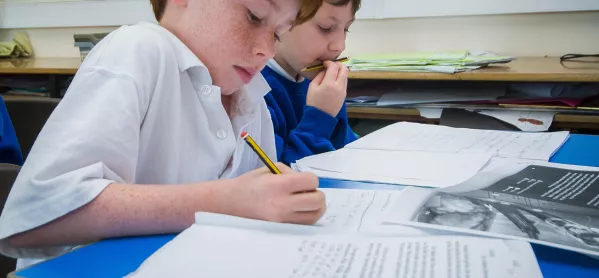Today’s provisional Sats results reveal that 64 per cent of 10- and 11-year-olds have reached the expected standard in reading, writing and maths.
The headline figures released by the Department for Education show that results have risen since last year, when 61 per cent of pupils reached the expected standard in the three Rs.
Around 600,000 Year 6 children took the tests in reading, maths and spelling, punctuation and grammar (Spag) in May.
There are also writing assessments carried out by pupils’ own teachers.
Today’s results show that 75 per cent of pupils reached the expected standard in reading, up from 72 per cent last year. Initially this figure was 71 per cent but it was revised upwards after appeals.
In maths, 76 per cent of pupils reached the expected standard, up from 75 per cent last year.
In Spag, 78 per cent of pupils reached the expected standard, up from 77 per cent last year.
In writing, 78 per cent of pupils reached the expected standard up from 76 per cent last year, although changes to the way writing is assessed mean the results this year are not directly comparable to last year, says the DfE.
The Department for Education has also revealed today that the threshold for the expected standard has risen in all three subjects.
Nick Gibb, schools standards minister, said: “A good primary education lays the foundations for success at secondary school and beyond. That’s why we introduced a more rigorous, knowledge-rich primary school curriculum – with an emphasis on reading and fluency in arithmetic – to ensure every child is helped to reach their potential from the moment they start school.
“Today’s results and the rising standards we are seeing in our primary schools are the fruit of our reforms and a tribute to the hard work and dedication of teachers across the country. These reforms promise even more success in the years to come and will help to improve education for every child, no matter their background.”
Schools will now have the chance to study their pupils’ scores and they may appeal if they think the mark scheme has been applied incorrectly or if there is a clerical error.
Updated results are due to be published in August or September, which will show local authorities’ performance.
And in December, the revised results and the performance tables are due to be published. The number of schools below the floor standards will also be published then. If a school is below the floor standard it can be forced into academisation or to have a change of academy sponsor.





